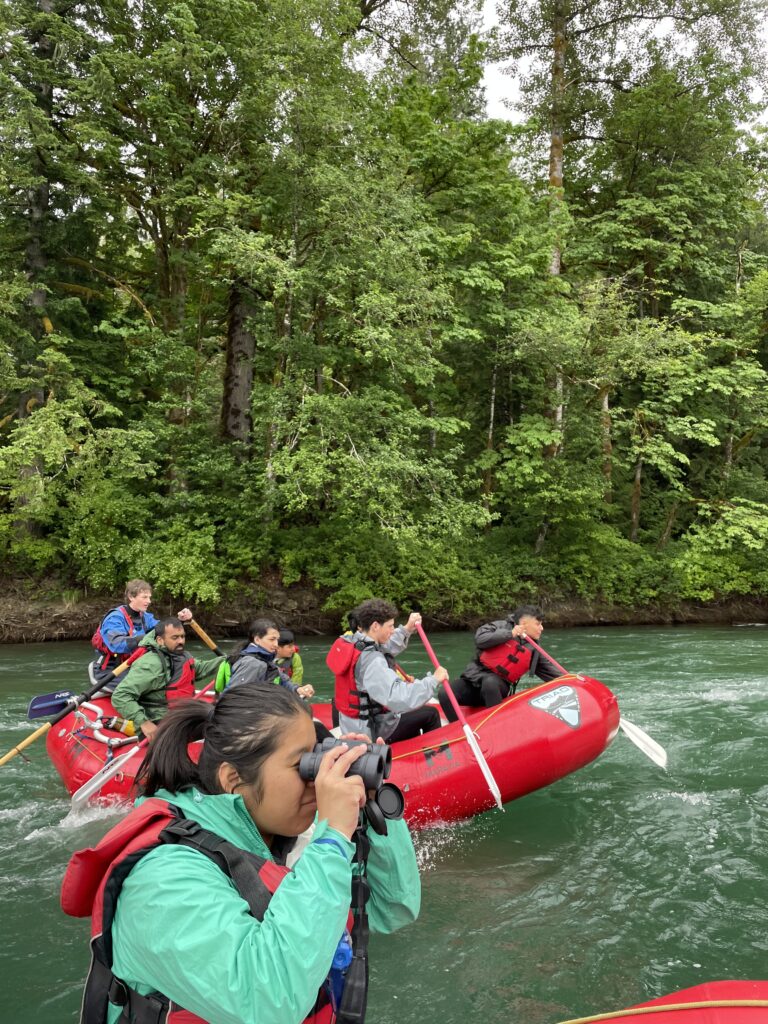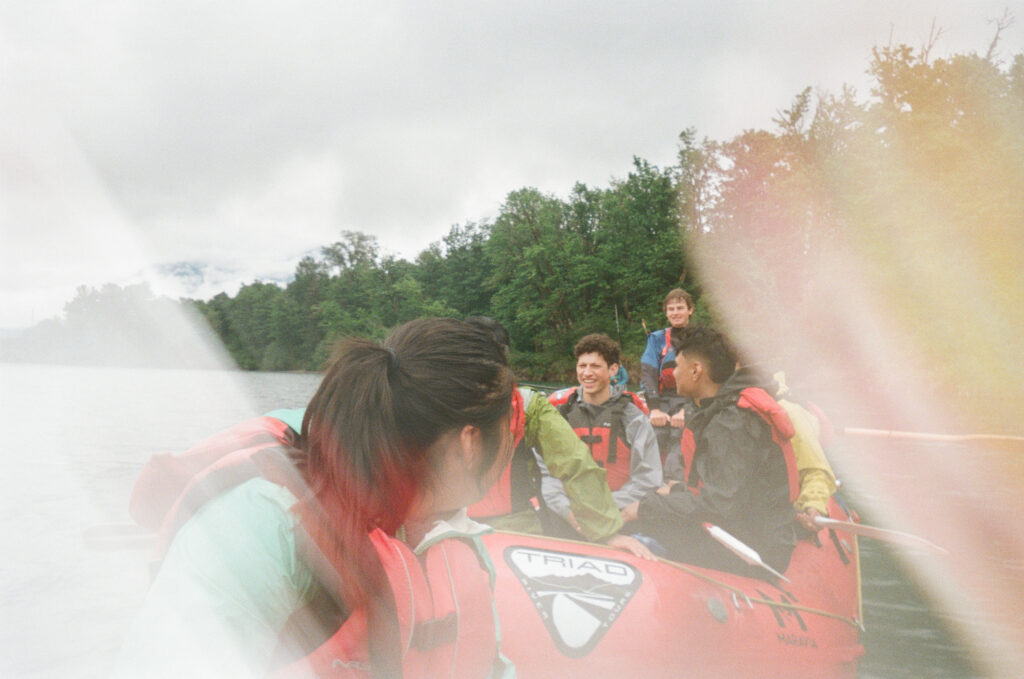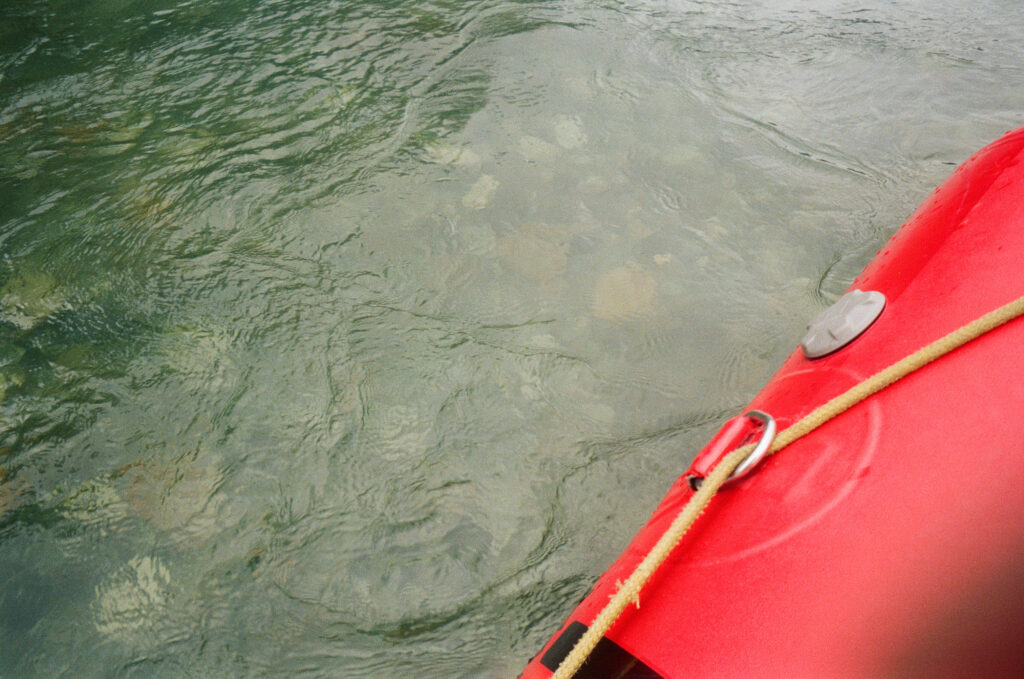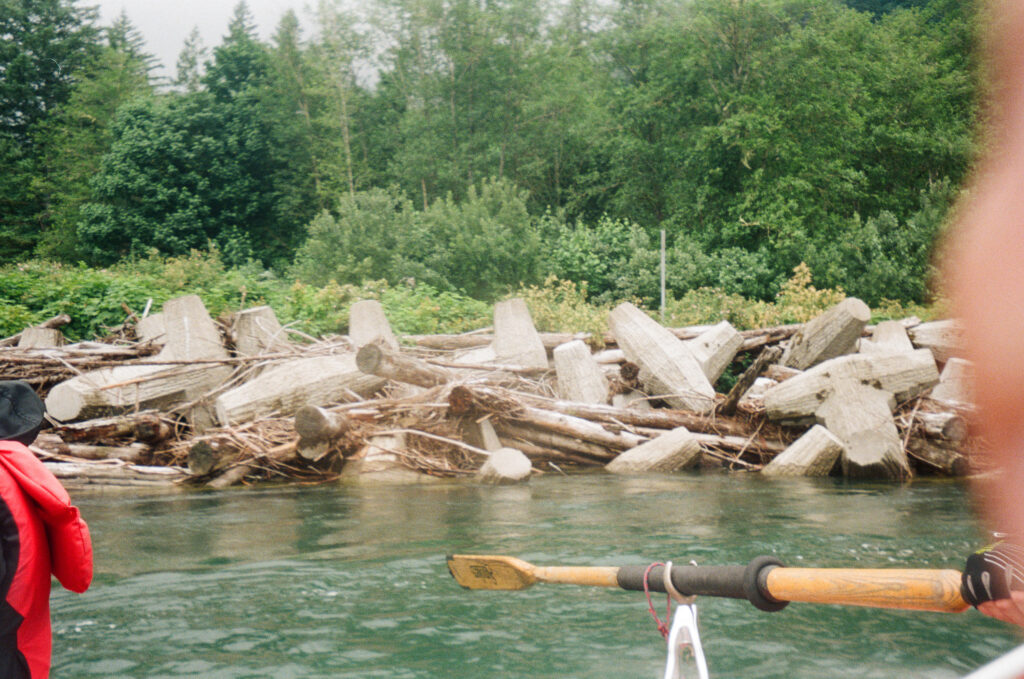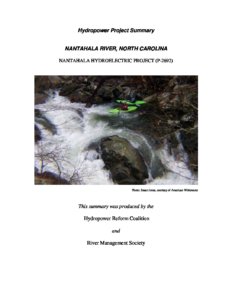Vamos Outdoors Project x American Rivers Float the Mighty Skagit River: A Photo Essay
In June 2023, American Rivers teamed up once again with the Vamos Outdoors Project to float the Wild and Scenic Skagit River. Students from Latine, Migrant, Multilingual, and Newcomer families enjoyed a vibrant afternoon on an ecological gem of a river right in their backyards. We gave the students a few waterproof disposable cameras, and this is what they captured…
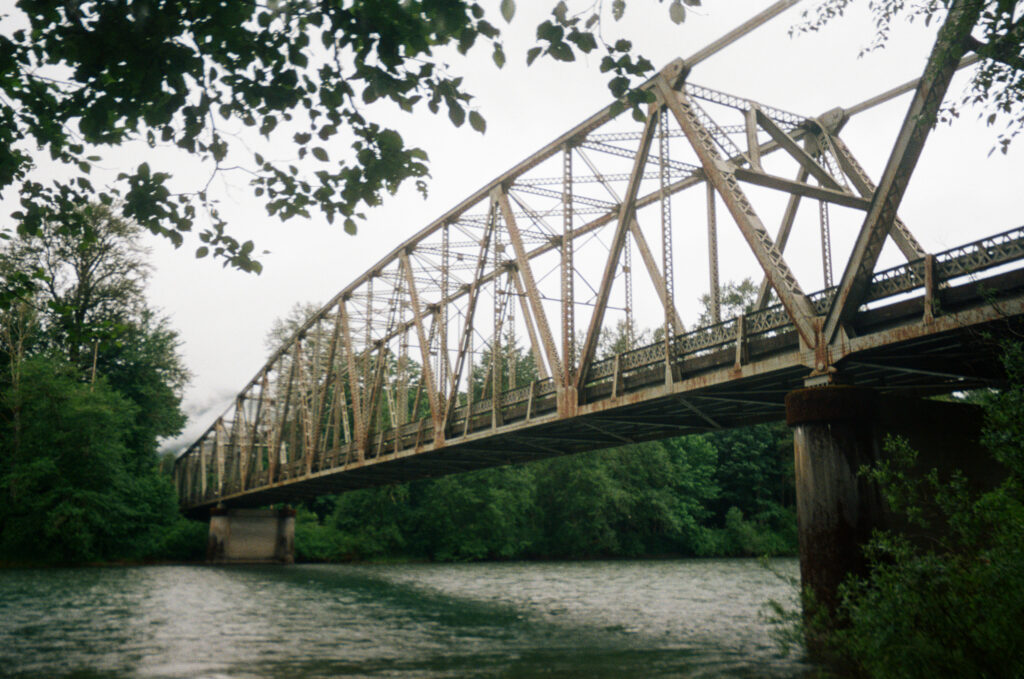
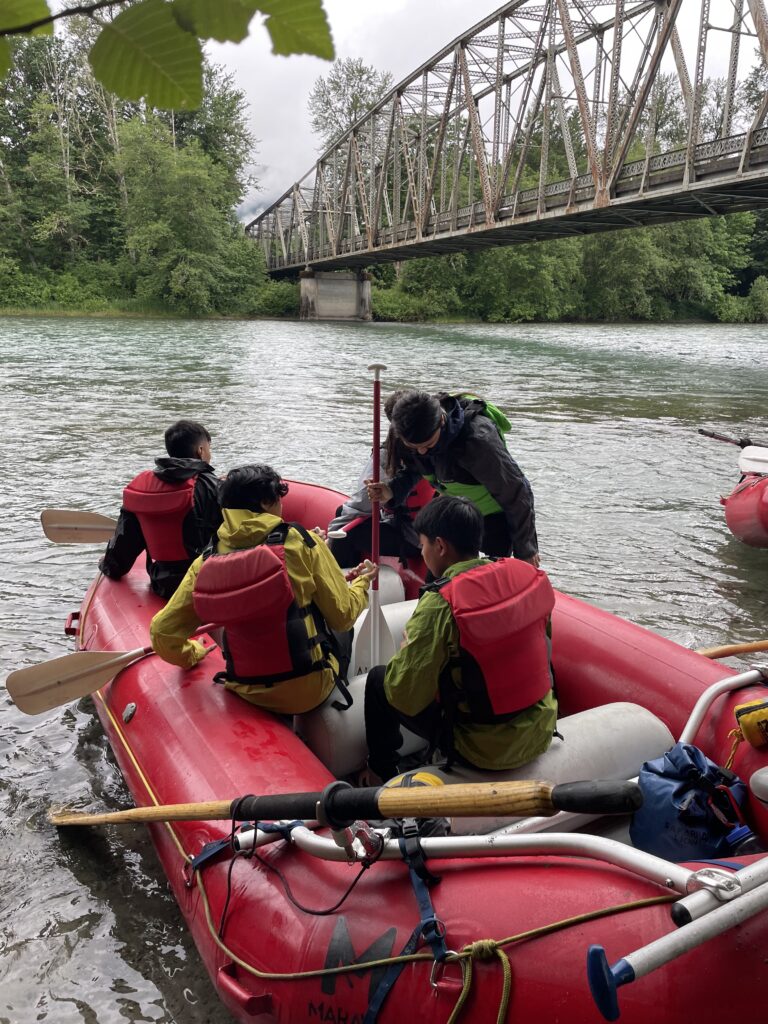
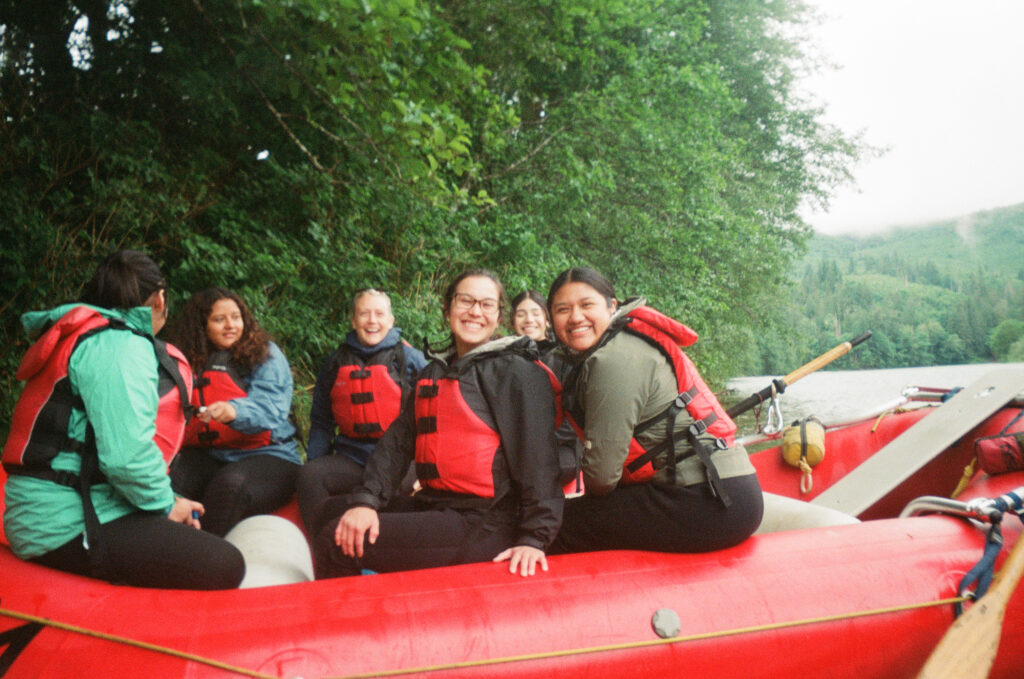
A dense, low cloud cover and some morning drizzle stood no chance against nine fired-up high school students. Despite an early Saturday start, the students arrived in Rockport, Washington bright-eyed and bushy-tailed, excited for a day on the Wild and Scenic Skagit River. One student had just graduated high school the night prior and was up celebrating with family until 4 a.m.! When asked about why he wasn’t sleeping in on his first day as a high school graduate, he replied, “I wouldn’t miss this.”
The group set out in two rafts from the Marblemount Boat Launch just off of Highway 20 in eastern Skagit County. The two-boat system quickly gave rise to some friendly competition: which raft team could paddle the fastest, which team could splash the other team the most, and which boat could spot more bald eagles. We floated first past the Cascade River: a cold, clear tributary to the Skagit River which provides excellent habitat for salmon and steelhead spawning and rearing, as well as fantastic whitewater boating opportunities. American Rivers is currently working with partners to designate the Cascade River as an Outstanding Resource Water (ORW) under the Clean Water Act, which would protect the river from activities that might negatively impact its near-pristine water quality. By safeguarding existing water quality, an ORW designation for the Cascade River would help protect clean drinking water for downstream communities, support the local economy, bolster the health and abundance of fish and wildlife species in the Skagit River watershed, and ultimately ensure that the Cascade River will remain as special in the future as it is today.
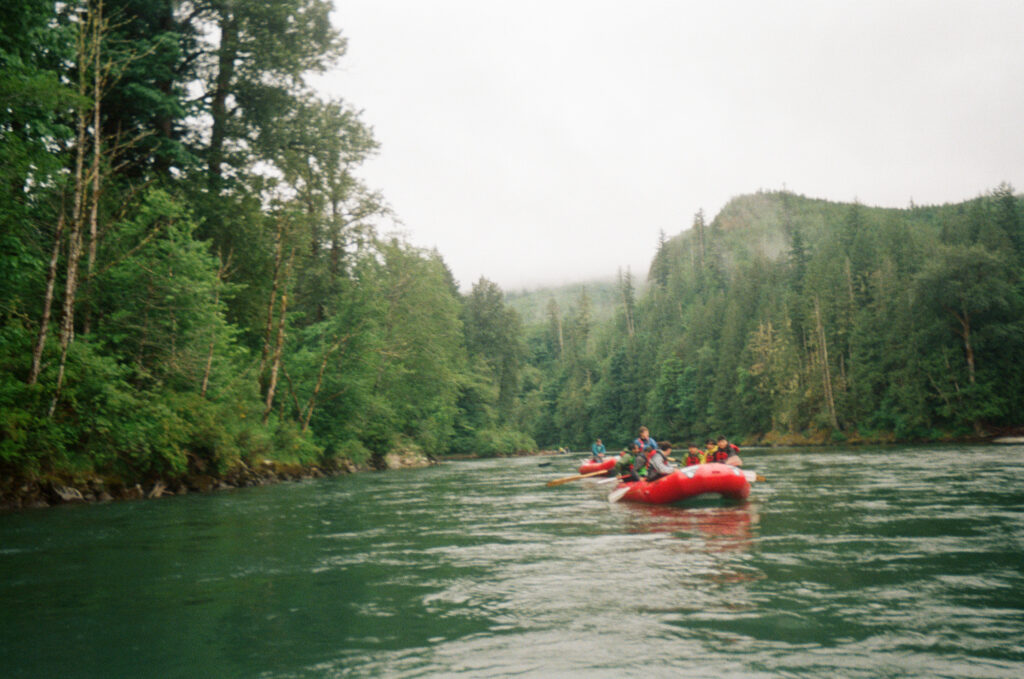
As we snaked our way through the mid- Skagit’s gentle rapids, the students had a long discussion with our guides about how they got their jobs, and we talked about pathways for students to become outdoor professionals themselves—careers in which several of the students expressed great interest. One of our guides was pursuing a Bachelor’s degree in environmental studies. We talked about the importance of environmental advocacy and opportunities for the students to continue their education if they were interested in environmental protection as a profession. The primary goal of these trips with the Vamos Outdoors Project is for the students to just have fun, which tends to be pretty easy to accomplish given their brilliant attitudes! A secondary goal is to empower the next generation of river advocates. American Rivers recognizes that river protection is perpetual work, and fostering the next generation of river advocates is essential for the longevity of healthy rivers.
The river was clear in most places, allowing for easy salmon spotting. We reviewed the life cycle of Pacific salmon, pointing to places along the river where we might likely see different life stages (e.g., juvenile salmon under low hanging branches for protection, adult salmon along the river’s edges in medium sized gravel appropriate for spawning, etc.). Most students already knew the handy way of recalling the five species of Pacific salmon, which all utilize the Skagit River’s cold, clean water to spawn and rear. The students also got to see areas where the river has eroded banks underneath State Route 20 (AKA the North Cascades Highway), and the 4,430 cubic feet per second pushing our rafts along made the power of water even more evident. In response to this erosion, stakeholders and Tribes in the Skagit River basin have constructed bank stabilization structures like the ones pictured here.
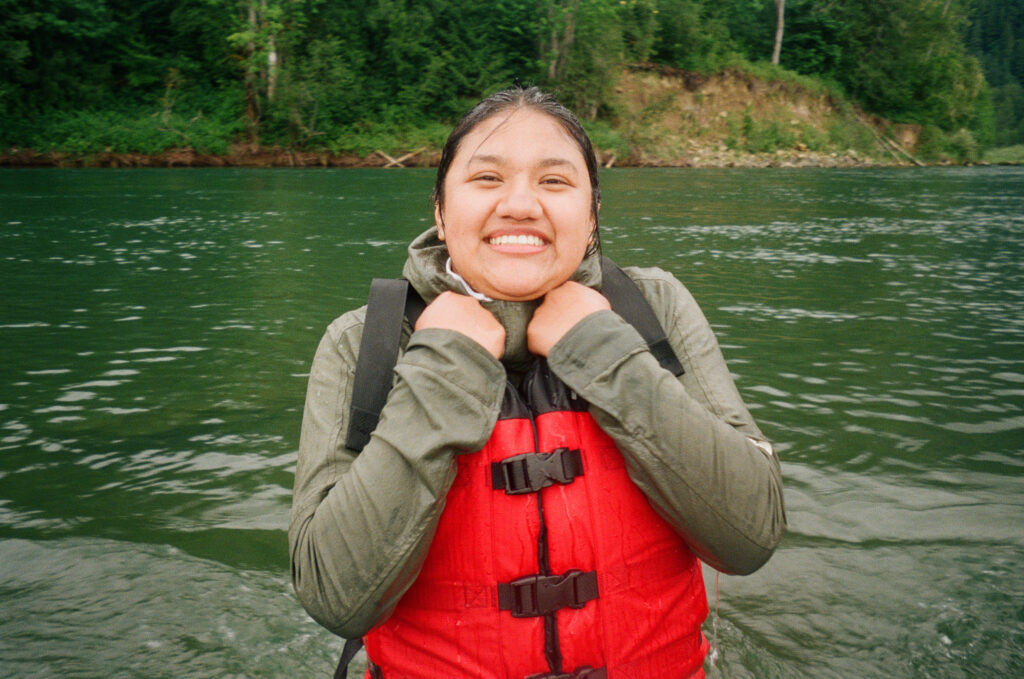
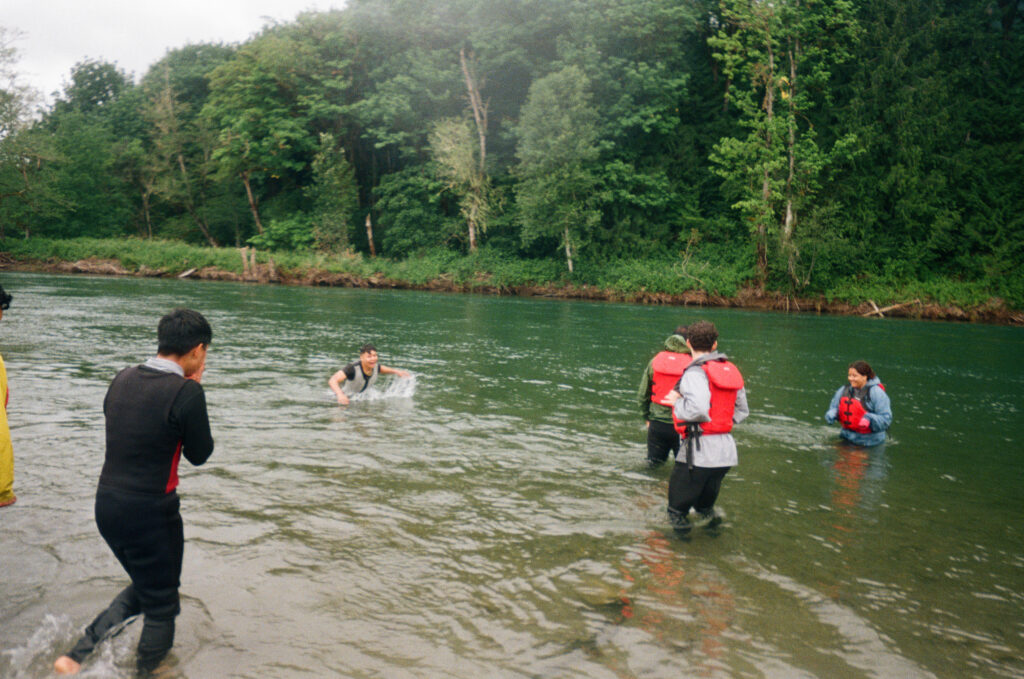
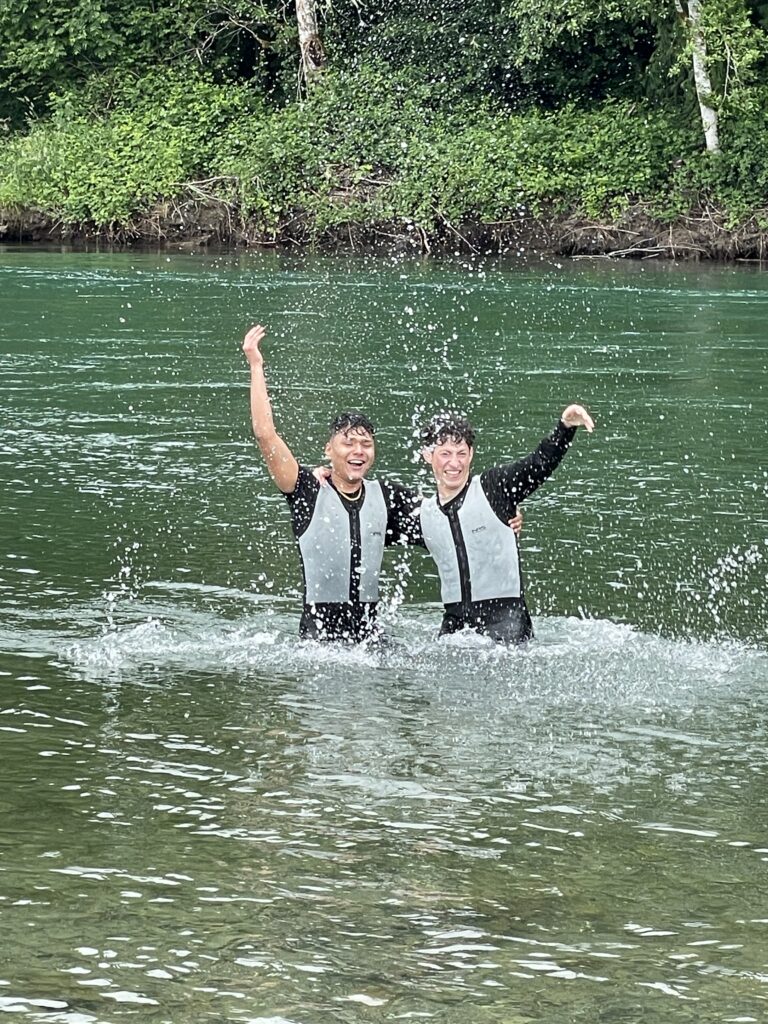
The air temperature was in the low 50s; the water temperature in the upper 40s! The last thing on this American Rivers staffer’s mind was swimming, but the students had other ideas… Our lifeguard-certified guides pulled the rafts over to a sandy bank and every single student ran straight into the water. Hoots and hollers echoed up and down the river. Boats passed by—their operators bundled up in puffy coats and Gore-Tex—watching in awe as the students dunked themselves underwater. The students were fully immersed in the experience—a reminder of all the joy that rivers offer us.
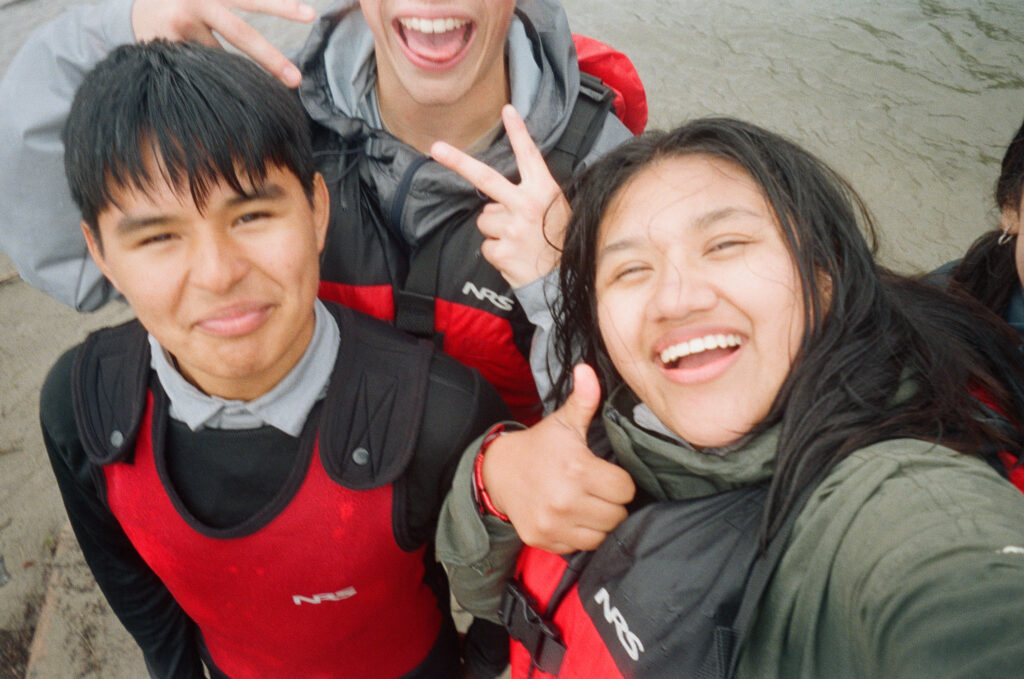
After we hauled the boats out at the takeout, we all gathered for lunch, where we shared our ‘rose, bud, and thorn’ of the trip: something you loved, something that you want to do better, and something that challenged you. Swimming in the river was a very popular ‘rose.’ Many of the students wanted to improve their paddling technique and learn more about whitewater boating, which was a clear signal that we need to continue to offer these opportunities! While the trip leaders thought the weather would present a challenge, not a single student mentioned it. With full hearts (and a warm change of clothes), the students headed back home.
American Rivers is honored to partner with the Vamos Outdoors Project to offer experiences like this to Latine, Migrant, Multilingual, and Newcomer students who have been traditionally underserved in conservation, environmental education, and outdoor pursuits, disconnecting them from their rivers and the environmental threats that disproportionately burden their communities. Listening to laughter carrying over water; seeing smiles big enough to lift heavy clouds; and watching budding river advocates connect with the incredible rivers right in their backyards is truly our ‘rose’ here at American Rivers.

